Hotel quarantine inquiry: Victoria’s Department of Health and Human Services the beast that sparked second wave

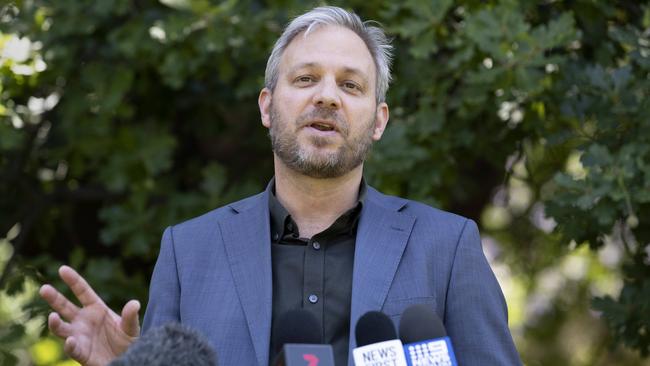
Chief Health Officer Brett Sutton described DHHS as a “rather large beast” while giving evidence before the inquiry into the hotel quarantine disaster.
Former judge Jennifer Coate went several steps further on Monday, with her final report demolishing the super-department’s reputation, evidence and failure to take responsibility for the system that sparked hundreds of deaths and strangled the national economy.
While the Andrews government has already started dismantling DHHS, Coate has destroyed its legacy, one upon which Labor has fundamentally built its re-election strategies.
Coate makes clear in her report that DHHS’s failure to accept responsibility for — and control of — the hotel quarantine system is at the heart of Victoria’s second wave.
She did not miss former DHHS secretary Kym Peake, nor did she in any way bolster former health minister Jenny Mikakos’s CV.
Coate has raised further serious questions about public health resourcing amid a sea of contradictory evidence that came from DHHS, an entity where some of its people struggled with the notion of accountability, misunderstood basic directives and ignored the spaghetti charts that defined their responsibilities.
Those in hotel quarantine were effectively home alone as confusion smothered DHHS.
“This level of confusion and disagreement inside the DHHS chain of command invariably contributed to the ultimate position that no division inside DHHS saw itself as having the power or authority or ability to be responsible for the operation of the hotel quarantine program,” Coate found.
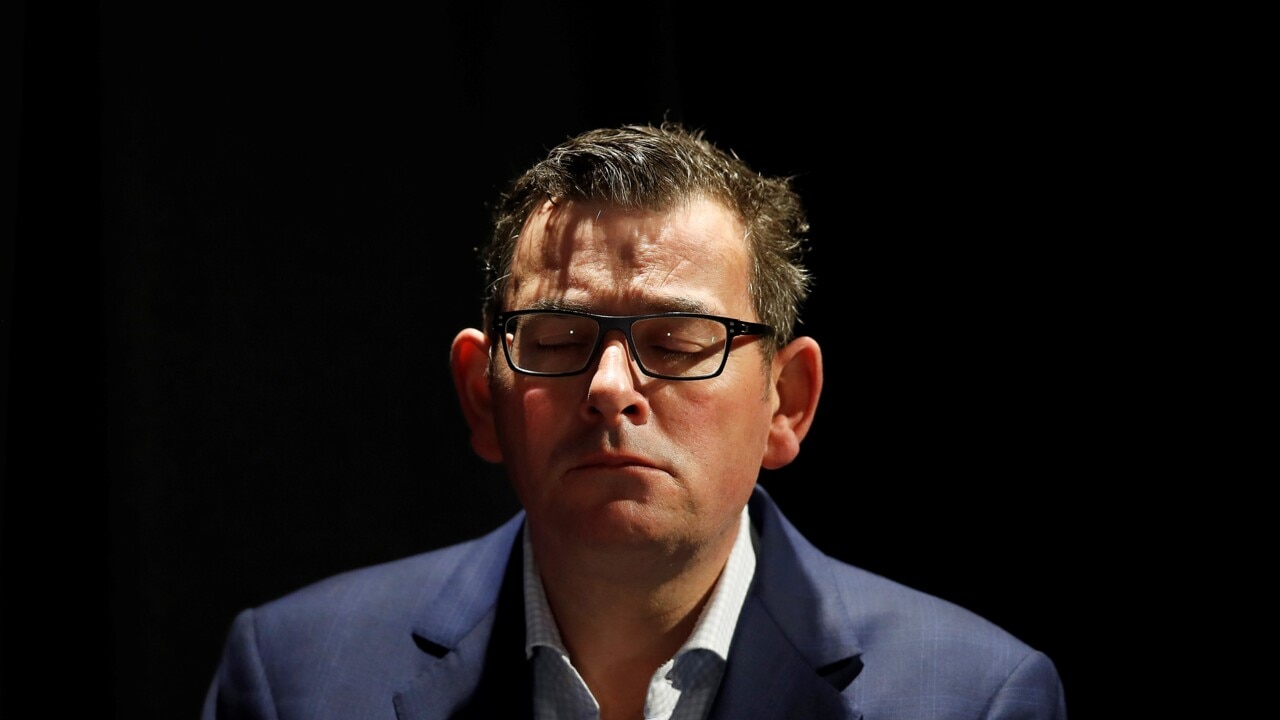
“For such a high-risk program to be left in this situation was a catastrophe waiting to happen.’’
While so much of the quarantine narrative has focused on the role of security guards, the heart of this story is in the DHHS response.
The quarantine framework had no chance of working because no-one was responsible for the policy. There was no single person who accepted they were in control and on any day the virus was coursing through the hotel rooms and hallways, no-one actually thought they should be in charge.
The DHHS failures were at the centre of Victorian Premier Daniel Andrews’ messaging after the report was delivered on Monday, declaring that both Mikakos and Peake would have gone had they not resigned earlier.
The producers of Yes, Minister might have blushed if they were to have written a script around the quarantine failures.
The quarantine policy had its roots planted on March 29 and 30 when a national strategy was decided upon, with Victoria’s Department of Jobs, Precincts and Regions holding the contracts for hotels, security guards and some cleaning. It was this setup that provoked a broad but mistaken assumption in DHHS that there was a shared responsibility for quarantining. There never really was.
An email from Jason Helps, DHSS’s deputy director (emergency operation and capability- Emergency Management Branch) to the DJPR on March 29 makes clear that DHHS was in control, a point contested by Peake.
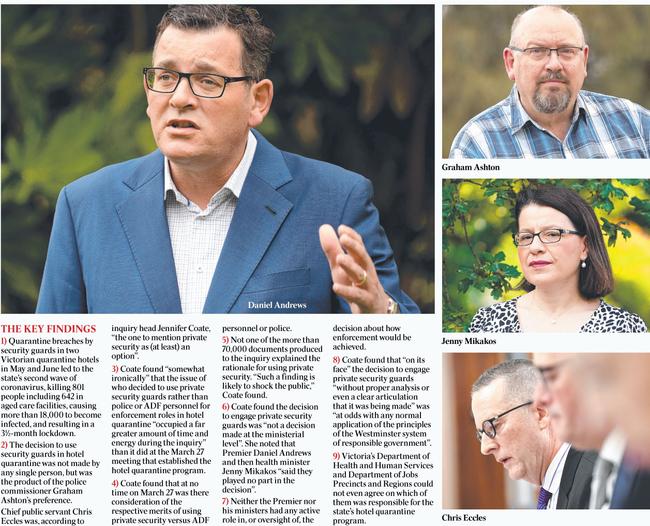
Coates was having nothing of it, declaring that the “plain meaning” of Helps’s email was “consistent with the evidence of all of the other witnesses not aligned with DHHS”.
While DHHS tried to run from this control accountability, a flood of evidence flowed in the opposite direction, including from Emergency Management Commissioner Andrew Crisp, the Premier, DJPR secretary Simon Phemister, Jobs Minister Martin Pakula, Police Minister Lisa Neville and police chief Shane Patton.
Coate sided with the numbers, finding against DHHS: “The fact that it did not see itself as having this responsibility, either during its involvement in the program or throughout this inquiry, can be understood as being a progenitor of many problems that eventuated in the hotel quarantine program.”
The report found that on April 3, Andrews instructed Peake to nominate an associate director to be responsible for the day-to-day running of DHHS because of the new Crisis Council of Cabinet structure, which was running the COVID-19 show. Remarkably, Peake never followed the order.
“Despite the direction from the Premier that she should divest herself of ongoing responsibilities as secretary to DHHS, Ms Peake retained her day-to-day responsibilities for health and appointed a deputy secretary only for responsibility of the day-to-day management of the human services aspect of her role,” Coate found.
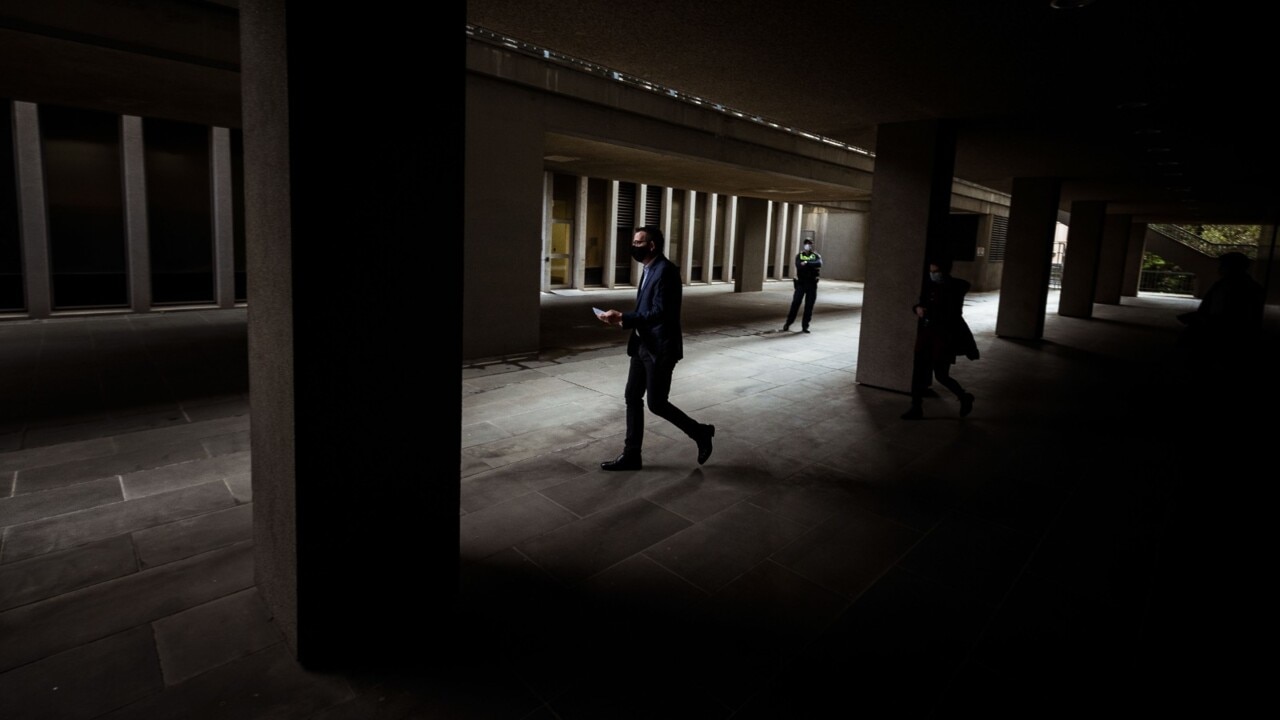
“Even though this was a departure from what the Premier had requested of her expressly and in writing, she did not raise it with the Premier directly.”
While Sutton became something of a sex symbol for the middle classes, there was angst all around him, with ministers at times concerned about his judgment (ultimately answered by the killing of the second wave).
Sutton had his own questions about why he had not been made state controller of health for the pandemic, a job that would have given him greater responsibility and access to more information.
Peake did not promote him to this job and Coate was confounded by some of her explanation for the decision. “This deprived the program of that expertise (held by Sutton) and created another fragmented line of reporting, accountability and opportunity lost for oversight of the hotel quarantine program,” Coate lamented.
The hotel quarantine direction was so lacking that fundamental tasks such as cleaning were an afterthought. It wasn’t until June 16 that comprehensive, specific advice on hotel quarantine cleaning was provided by DHHS to the various sites.
All of which begs the broader question of what else DHHS messed up during the pandemic. We know it was hard to find on the ground in some worst-affected suburbs when the virus really took hold during the second outbreak. There were complaints about public health messaging and concerns that multicultural groups were not properly catered for.
It might just be that Coate has peeled off the first layer of what looks like a weepingly dysfunctional organisation, one which has drowned for years in billions of dollars of political largesse.

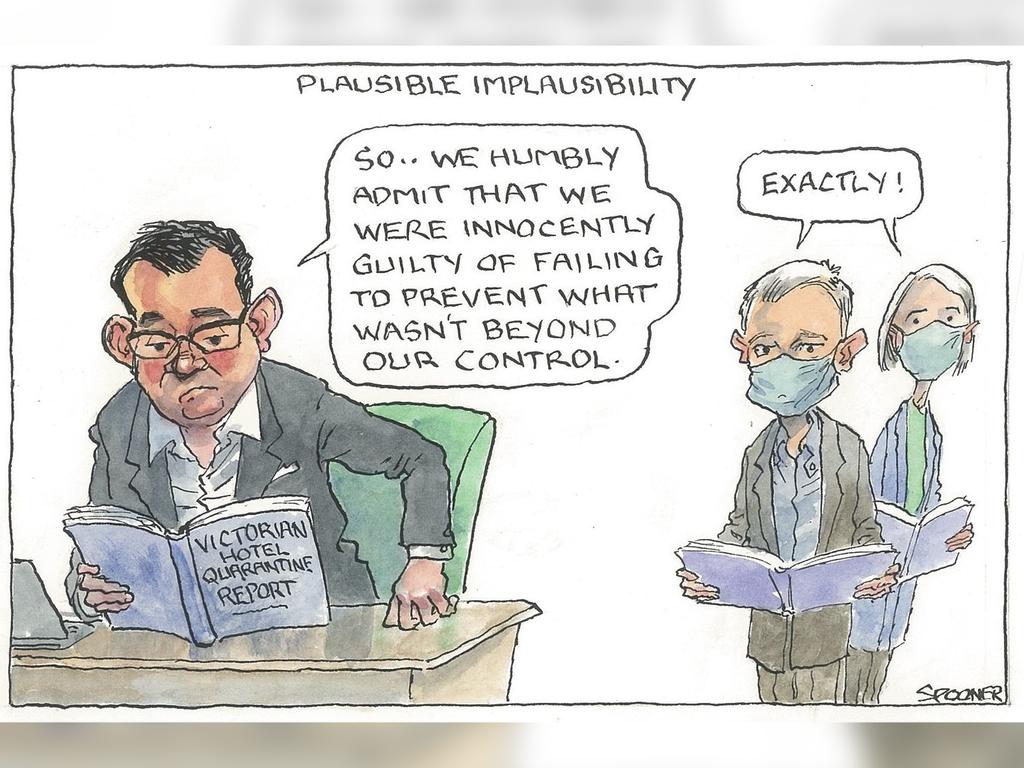
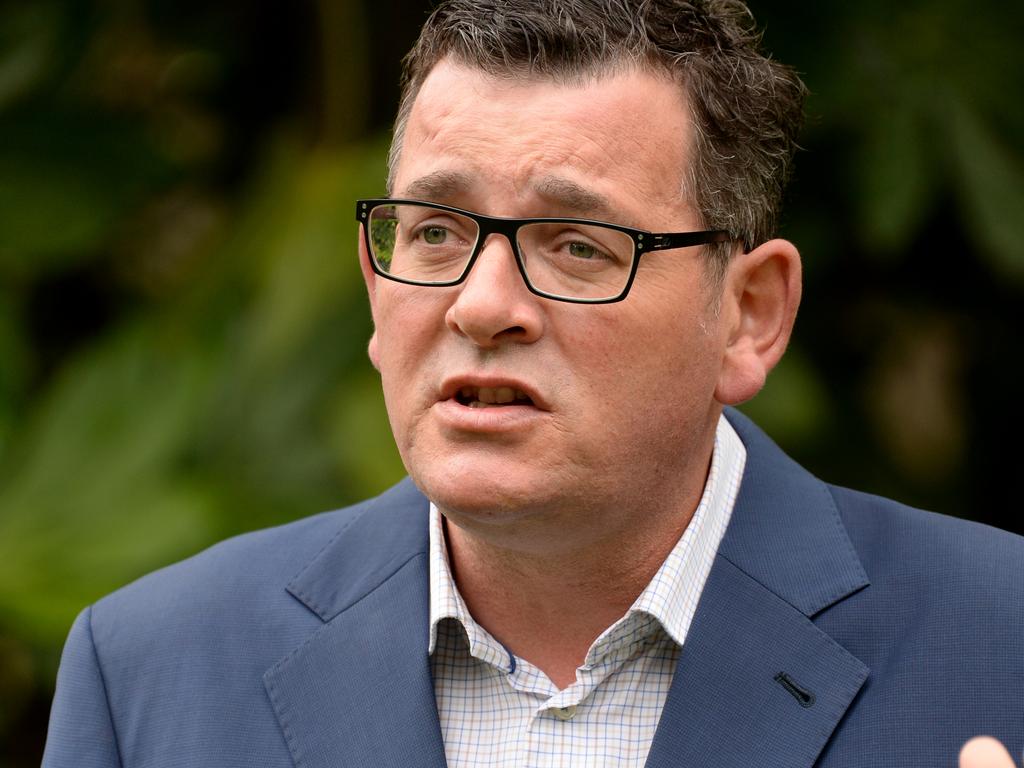

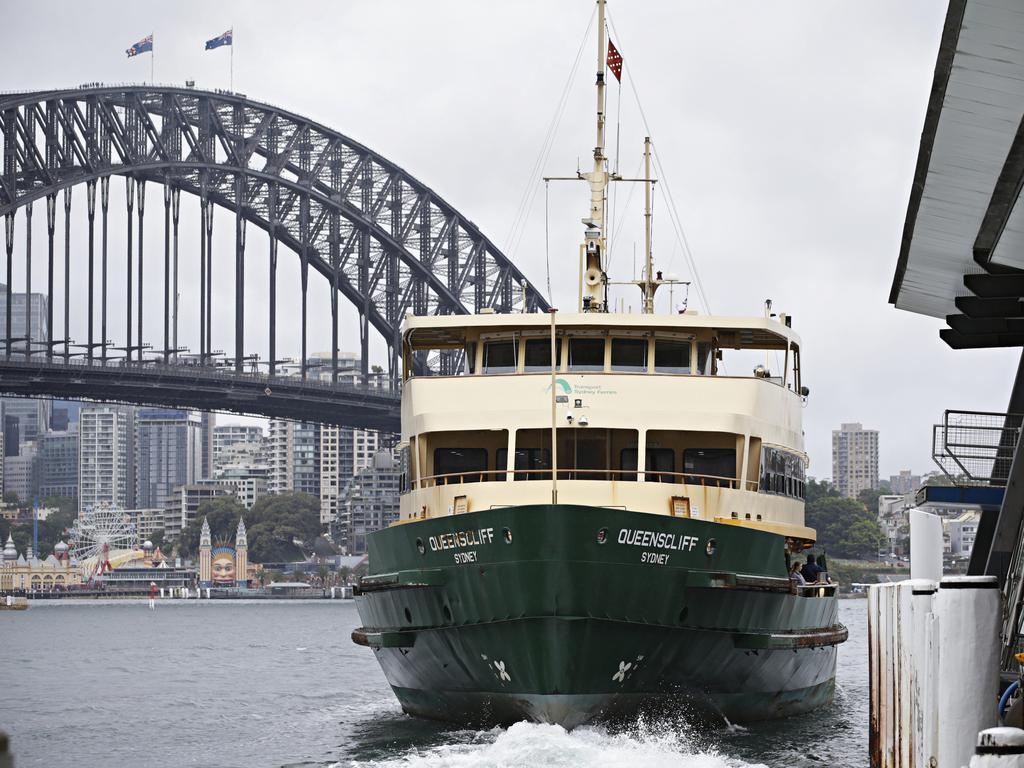
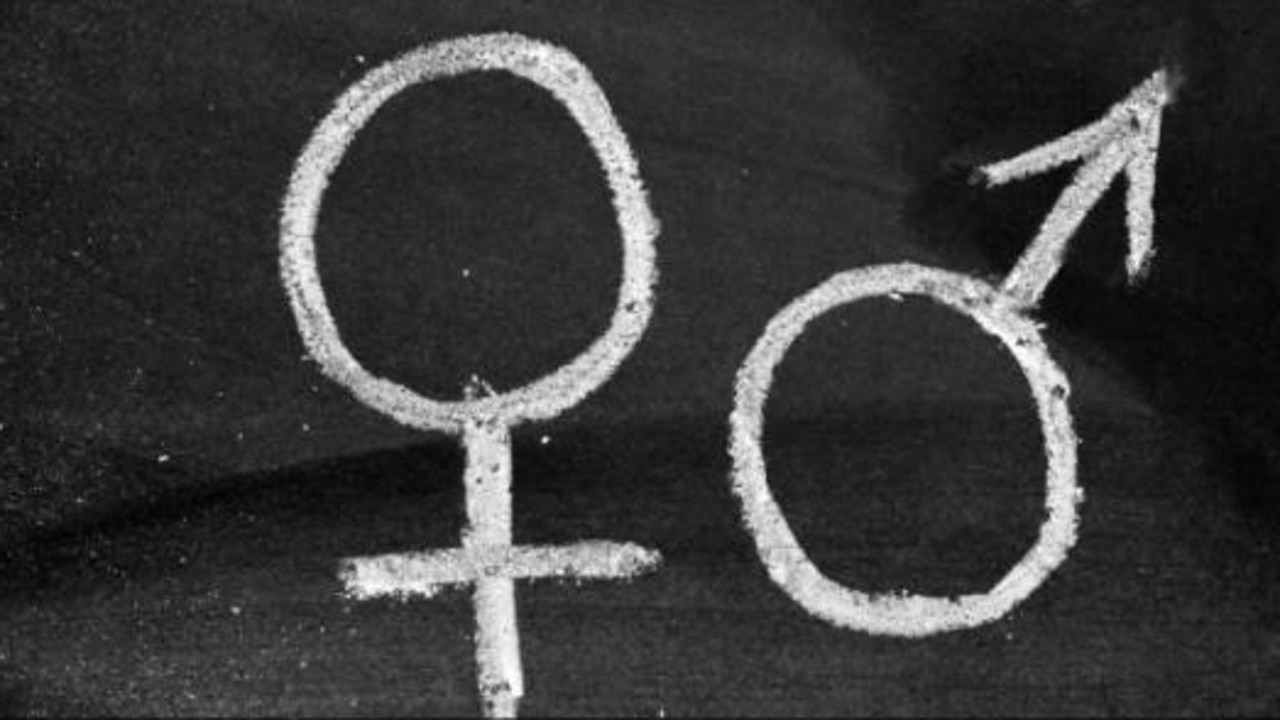

Victoria’s Department of Health and Human Services is the beast that tried to hide.